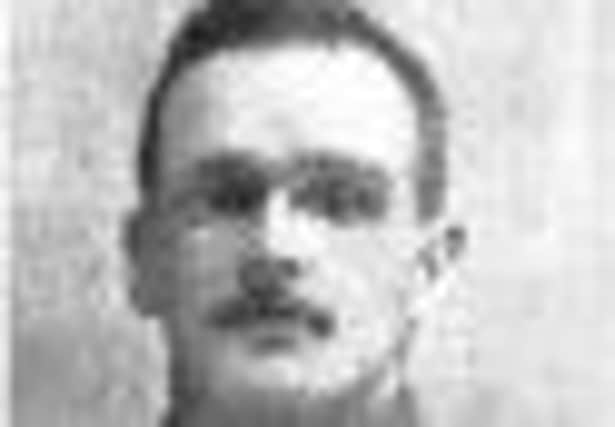Dawson’s grim end in German prisoner of war camp


Privates Dawson Parkinson and Samuel Hayhurst (Pinder) were officially reported as having been missing since May 3rd, 1917, and, not long after, in early June, Mr and Mrs Brotherton, of Brookside Cottages, received word their son, Private Ben Brotherton, 2nd/6th Duke of Wellington’s West Riding Regiment, had gone missing in action on the same date. He was 25 and had joined up on March 22nd, 1916. The last letter received from him was dated April 29th. Private Hayhurst joined the West Yorkshire Regiment on October 23rd, 1916 and had been in France for six months. He was 36.
Here is Clitheroe historian Shirley Penman’s historical record of the other soldier, Private Dawson Parkinson, who also lost his life during the Great War.
Advertisement
Hide AdAdvertisement
Hide AdPrivate Parkinson (23716), 2nd Battalion, Prince of Wales (West Riding Regiment), died aged 38 on December 22nd, 1917, from starvation in a German prison camp. He is buried in grave VII F.1. Berlin South Western Cemetery, Berlin, Germany. The son of John and Sarah Ellen (nee Chew), they were married on March 30th, 1878, at SS Peter and Paul Church, Bolton-by-Bowland. Private Parkinson was the husband of Alice Ann (nee Life) and they were also married in 1905 at SS Peter and Paul, Bolton-by-Bowland.
Their address was given as Nook Cottage, Bolton-by-Bowland, and father-of-two Dawson Parkinson, who before joining up was a gardener at Bolton Hall, enlisted on August 12th, 1916, going to France on January 9th, 1917, after training. He would have taken part in the first Battle of the Scarpe between April 9-14th, 1917, and the third Battle of the Scarpe on May 3rd-4th that year.
Dawson was taken prisoner on the first day of this engagement and wrote to his wife acquainting her with this fact in a letter received on July 3rd, 1917. It would appear Dawson was then transported to Germany and moved from camp to camp, including Doeberitz and Althdam where he subsequently died.
His wife received a letter to this effect on January 25th, 1918. In the Craven Herald edition of February 1st, 1918, a letter appeared which told of the anger of the residents of Gisburn at the horrific treatment meted out to Dawson, who was their “adopted” prisoner of war”.
Advertisement
Hide AdAdvertisement
Hide AdThe whole village plus family and friends had saved small amounts each week until a certain amount was reached and every five days a splendid parcel – one of which contained a complete outfit of clothes – would be sent in their name to Dawson. He never received one and is believed to have starved to death as the last postcard he wrote the week before he died spoke of “two loaves of bread between 13 of us” (previous to adopting Dawson, the village’s POW had been Private Harry Leeson, who had been a postman at Gisburn, and who had shared the same horrific fate).
In a later edition of the Craven Herald his wife thanked the people of Gisburn and said she would never forget their kindness. She regretted that Dawson had never had the comfort of knowing all that was done for him.